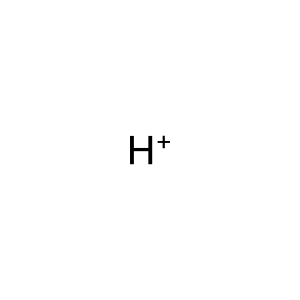Reaction: SLC16A1:BSG cotransports monocarboxylates, H+ from extracellular region to cytosol
- in pathway: Proton-coupled monocarboxylate transport
Four members of the SLC16A gene family encode classical monocarboxylate transporters, MCT1-4. They all function as proton-dependent transporters of monocarboxylic acids such as lactate and pyruvate and ketone bodies such as acetacetate and beta-hydroxybutyrate. These processes are crucial in the regulation of energy metabolism and acid-base homeostasis.
SLC16A1 encodes MCT1, a ubiquitiously expressed protein (Garcia et al. 1994). Defects in SLC16A1 are the cause of symptomatic deficiency in lactate transport (SDLT), resulting in an acidic intracellular environment and muscle degeneration (Merezhinskaya et al. 2000). Activating promotor mutations in SLC16A1 are associated with exercise-induced hyperinsulinism (EIHI), a dominantly inherited hypoglycemic disorder characterized by inappropriate insulin secretion during anaerobic exercise or on pyruvate load (Otonkoski et al. 2000). MCT1 requires the binding of a single transmembrane glycoprotein (basigin, BSG) for activity (Neuhoff et al, 2005; Halestrap 2013).
Higher uptake of dissolved acetylsalicylate (ASA-) versus neutral acid shows there are transmembrane transport processes specific to ASA- or similar ions (Leonards, 1963). For salicylate, experiments with monolayers of Caco-2 cells have shown a mixture of pH-dependent passive and active influx, and one of the participating transport proteins is SLC16A1 (MCT1) (Koljonen et al, 2008). Based on this observation, it is likely that SLC16A1 also transports ASA-.
SLC16A1 encodes MCT1, a ubiquitiously expressed protein (Garcia et al. 1994). Defects in SLC16A1 are the cause of symptomatic deficiency in lactate transport (SDLT), resulting in an acidic intracellular environment and muscle degeneration (Merezhinskaya et al. 2000). Activating promotor mutations in SLC16A1 are associated with exercise-induced hyperinsulinism (EIHI), a dominantly inherited hypoglycemic disorder characterized by inappropriate insulin secretion during anaerobic exercise or on pyruvate load (Otonkoski et al. 2000). MCT1 requires the binding of a single transmembrane glycoprotein (basigin, BSG) for activity (Neuhoff et al, 2005; Halestrap 2013).
Higher uptake of dissolved acetylsalicylate (ASA-) versus neutral acid shows there are transmembrane transport processes specific to ASA- or similar ions (Leonards, 1963). For salicylate, experiments with monolayers of Caco-2 cells have shown a mixture of pH-dependent passive and active influx, and one of the participating transport proteins is SLC16A1 (MCT1) (Koljonen et al, 2008). Based on this observation, it is likely that SLC16A1 also transports ASA-.
Reaction - small molecule participants:
H+ [cytosol]
H+ [extracellular region]
H+ [cytosol]
H+ [extracellular region]
Reactome.org reaction link: R-HSA-9645220
======
Reaction input - small molecules:
hydron
hydron
Reaction output - small molecules:
hydron
hydron
Reactome.org link: R-HSA-9645220

